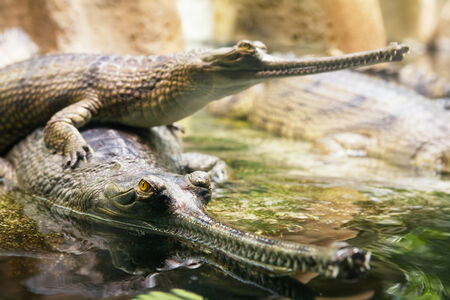Introduction to Exotic Reptile Ownership in the UK
Over recent years, keeping exotic reptiles as pets has become increasingly popular across the UK. From charismatic bearded dragons basking under a heat lamp to vividly coloured corn snakes slithering through their vivariums, these fascinating creatures have found a special place in the hearts of British pet owners. The unique appeal of reptiles lies in their diverse behaviours, striking appearances, and often lower maintenance requirements compared to more traditional pets like dogs or cats. However, with this growing interest comes a pressing need for clear regulations and guidance. UK laws are designed not just to safeguard the welfare of the reptiles themselves, but also to ensure public safety and protect local ecosystems from potential risks associated with non-native species. The table below summarises some key reasons behind these regulations:
| Reason for Regulation | Explanation |
|---|---|
| Animal Welfare | Ensuring reptiles receive appropriate care, habitat, and nutrition. |
| Public Safety | Minimising risks from dangerous or venomous species. |
| Environmental Protection | Preventing the release of invasive species into local habitats. |
By understanding why these rules exist, prospective reptile keepers can better appreciate their responsibilities and contribute positively to the UKs vibrant community of exotic pet enthusiasts.
2. Licensing and Legal Requirements
If youre dreaming of keeping a colourful chameleon or a striking snake as your companion in the UK, its crucial to get to grips with the licensing and legal requirements. The UK takes the welfare and safety of both animals and humans seriously, so there are clear rules you must follow—especially when it comes to exotic reptiles.
Do You Need a Licence?
Not all exotic reptiles require a licence for private ownership, but some definitely do. This largely depends on whether your scaly sidekick is classified under the Dangerous Wild Animals Act 1976 (DWAA). Species considered potentially dangerous—like certain large snakes or monitor lizards—fall under this act, while common pet reptiles such as leopard geckos and corn snakes usually do not.
Dangerous Wild Animals Act 1976 Considerations
| Species Example | Licence Required? |
|---|---|
| Burmese Python | Yes |
| Corn Snake | No |
| Nile Monitor | Yes |
| Leopard Gecko | No |
If your reptile is listed under the DWAA, you must apply for a Dangerous Wild Animals Licence from your local council. This process involves inspections to ensure suitable housing, security, and welfare standards, plus public liability insurance.
Local Council Rules
Even if your reptile isn’t covered by national legislation, local councils may have additional requirements or restrictions. For example, some councils require registration of exotic pets or impose limits on breeding activities within residential areas. Always check with your local authority before bringing home a new friend.
Key Points for Prospective Owners
- Check if your reptile species is listed under the DWAA.
- If yes, obtain the relevant licence from your council.
- Prepare for home inspections and insurance requirements.
- Consult your local council about any additional rules or permits needed for ownership or breeding.
Understanding these legal hoops ensures you—and your adventurous reptilian mate—stay on the right side of British law while enjoying your unique companionship together.

3. Animal Welfare Standards
If you’re considering welcoming an exotic reptile into your UK home, understanding the Animal Welfare Act 2006 is crucial. This legislation sets out the legal responsibilities for all pet owners, including those caring for reptiles that are a bit more ‘out of the ordinary’. Under UK law, you must provide for your reptile’s five welfare needs: a suitable environment, a suitable diet, the ability to exhibit normal behaviour patterns, housing with or apart from other animals as appropriate, and protection from pain, suffering, injury, and disease.
Living Conditions
Your reptile’s enclosure should be spacious and secure, tailored to their natural habitat—think basking spots for bearded dragons or high humidity for green tree pythons. Adequate lighting (UVB) and heating are not just nice-to-haves; they’re legal requirements to ensure your scaly companion can thrive.
Diet Requirements
Feeding your reptile is more than just dropping in some crickets or greens. The law expects owners to research and provide a balanced diet that mimics what their pets would eat in the wild. Here’s a quick guide:
| Reptile Type | Recommended Diet |
|---|---|
| Bearded Dragon | Insects, leafy greens, occasional fruit |
| Corn Snake | Mice or rats (pre-killed) |
| Leopard Gecko | Live insects (mealworms, crickets) |
Health Monitoring
Routine health checks are part of your legal obligations. This includes monitoring for signs of illness like lethargy, loss of appetite, unusual shedding, or changes in behaviour. It’s wise to register with an exotic vet who understands these unique creatures. Keeping detailed records of feeding schedules, cleaning routines, and health checks can be invaluable if you ever need to demonstrate compliance with animal welfare standards.
Quick Checklist for Owners
- Enclosure meets species-specific needs
- Correct UVB lighting and temperature gradients
- Diverse and species-appropriate diet
- Regular cleaning and maintenance
- Access to veterinary care specialised in reptiles
Caring for exotic reptiles in the UK isn’t just about providing a home—it’s about meeting strict welfare standards that ensure your pet lives its best life under your roof.
4. Import, Export, and Trade Restrictions
If you’re dreaming of expanding your reptile family with a rare chameleon or perhaps sending a beloved gecko to a friend abroad, it’s essential to navigate the maze of UK laws on import, export, and trade. The United Kingdom takes its responsibility to protect exotic species seriously, especially under international agreements like CITES (the Convention on International Trade in Endangered Species of Wild Fauna and Flora). Here’s what every would-be reptile wrangler needs to know before packing their bags—or vivariums.
The Legal Framework
All activities involving the movement of exotic reptiles across UK borders are tightly controlled. Both the import and export of these creatures are regulated not only by domestic legislation but also by CITES. This means you’ll need to check both UK law and international agreements before making any move. Certain species may be completely banned from trade, while others might require specific permits.
CITES Regulations Explained
CITES divides species into three appendices based on their conservation status and level of protection required:
| Appendix | Description | Example Reptiles | Permit Requirement |
|---|---|---|---|
| I | Species threatened with extinction; trade is permitted only in exceptional circumstances. | Pancake Tortoise, Radiated Tortoise | Import/Export permits needed for all transactions. |
| II | Species not necessarily threatened with extinction but where trade must be controlled. | Green Iguana, Burmese Python | Export permit required; import permit sometimes required. |
| III | Species protected in at least one country which has asked other CITES Parties for assistance in controlling trade. | Savannah Monitor (in some cases) | Certificate of origin or export permit required. |
Required Paperwork & Procedures
If you intend to import or export an exotic reptile, you’ll need to obtain the appropriate CITES permits from the Animal and Plant Health Agency (APHA). This usually involves:
- Completing detailed application forms specifying the species, quantity, and purpose of movement.
- Providing proof of legal acquisition or captive breeding records.
- Complying with health and welfare standards during transport.
Trading Within the UK
Selling or purchasing protected species within the UK also requires careful attention to paperwork. For certain reptiles listed under Annex A of the UK Wildlife Trade Regulations (which align with CITES Appendix I), you’ll need an Article 10 Certificate before selling or displaying them commercially. Always check if your reptile is on this list before arranging any sale or exhibition.
Consequences of Non-Compliance
The penalties for breaching these regulations can be severe—including hefty fines, confiscation of animals, and even imprisonment. For passionate keepers like us who see our reptiles as more than just pets but fellow adventurers, following the rules is about safeguarding both our companions and their wild cousins around the globe.
5. Responsibilities and Best Practices for Reptile Keepers
Keeping an exotic reptile in the UK is not just about enjoying their fascinating company; it’s a serious commitment that comes with both legal and ethical responsibilities. To ensure your scaly companion thrives and you remain on the right side of UK regulations, its crucial to follow best practices covering handling, biosecurity, community etiquette, and emergency protocols. Below are key guidelines every responsible reptile keeper should know.
Handling Advice
Proper handling is vital for your reptile’s welfare and your safety. Many reptiles are sensitive to stress and rough treatment, so always approach them calmly and support their bodies fully. Never grab or restrain a reptile by the tail or limbs, as this can cause serious injury. Wash your hands before and after contact to prevent transmission of bacteria such as Salmonella.
Biosecurity Measures
Maintaining strict hygiene prevents the spread of disease between animals and humans. Here’s a quick overview:
| Action | Purpose |
|---|---|
| Regular Cleaning of Enclosures | Reduces risk of infections and parasites |
| Quarantine New Arrivals | Prevents introduction of diseases |
| Use Separate Equipment | Avoids cross-contamination between pets |
Community Expectations and Legal Considerations
The UK has strict rules about exotic pet ownership for the benefit of people and wildlife. Always ensure your reptile’s enclosure is secure to prevent escapes, as lost exotics can pose ecological risks and may breach the Dangerous Wild Animals Act if applicable. Be considerate of neighbours—no one appreciates an unexpected lizard in the garden! It’s also good manners (and often required) to inform local authorities or animal control if you keep species that could pose a risk if they escape.
What To Do If Your Pet Reptile Becomes Unwell or Lost
- If your reptile appears unwell—such as refusing food, showing unusual behaviour, or visible signs of illness—contact a specialist exotic vet promptly. Don’t attempt home remedies without professional advice.
- If your reptile goes missing, notify local animal wardens, nearby vets, and community groups immediately. Providing recent photos and a description helps speed up recovery efforts.
Emergency Contact Table
| Situation | Who to Contact |
|---|---|
| Sick/Injured Reptile | Local Exotic Vet (RCVS registered) |
| Lost Reptile | Council Animal Control/Local Police/Wildlife Rescue Centre |
By following these best practices, you’ll help ensure your exotic pet leads a healthy life while respecting the expectations of your community—and staying within the letter of UK law.
6. Resources and Where to Get Help
Whether youre a seasoned reptile enthusiast or just starting your journey with an exotic companion, knowing where to turn for help is absolutely crucial. The UK offers a wealth of support networks, societies, and official agencies ready to assist with advice, welfare concerns, or even emergency situations involving your scaly friends. Here’s a handy guide to the key resources you should bookmark on your adventure in responsible reptile ownership.
UK-Based Support Networks and Societies
If you ever need advice about reptile care, health, legal obligations, or just want to connect with fellow keepers, these organisations are excellent starting points:
| Organisation | Type of Support | Contact Details |
|---|---|---|
| The British Herpetological Society (BHS) | Education, events, husbandry advice | thebhs.org |
| The Reptile Welfare Association (RWA) | Welfare guidance, emergency rescue | reptilewelfare.org.uk |
| The Federation of British Herpetologists (FBH) | Legal updates, best practice information | thefbh.org |
| RSPCA Exotic Animal Rescue | Rescue services, welfare investigations | rspca.org.uk |
| The Exotic Pet Register | Lost & found service for exotic pets | exoticpetsregister.com |
Government Agencies for Legal Advice & Emergencies
Navigating the ins and outs of UK law can be tricky, especially with recent changes in wildlife regulations. For clarity on licensing or in case of legal queries and emergencies, reach out to these official bodies:
| Agency | Purpose / Area Covered | Contact Information |
|---|---|---|
| DEFRA (Department for Environment, Food & Rural Affairs) | Licensing queries (DWA), import/export rules, animal welfare law advice | gov.uk/defra |
| Your Local Council’s Animal Licensing Team | DWA licensing applications and inspections; local enforcement issues | Search: “[Your Council] animal licensing” online |
| Animal and Plant Health Agency (APHA) | Disease control, animal health emergencies, import/export health certification | gov.uk/apha |
| Scottish SPCA / USPCA (Northern Ireland) / SSPCA (Scotland) | Animal welfare support and enforcement outside England & Wales | scottishspca.org uspca.co.uk |
Finding a Reptile-Savvy Vet Near You
If your pet needs urgent medical attention or a specialist check-up, look for veterinarians with exotics experience. Many reptile societies maintain lists of recommended vets—don’t hesitate to ask them for referrals!
A Final Word for Adventurous Keepers and Their Scaly Sidekicks!
You’re never alone in your reptile journey here in the UK. Whether it’s questions about permits, tips on building the perfect vivarium, or help during an emergency escape attempt by a wily gecko, reach out to these fantastic organisations. Responsible ownership means staying informed—so keep this resource list close at hand as you explore the fascinating world of exotic reptiles!


